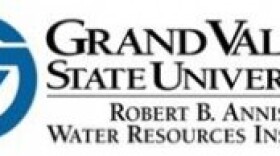3/11/22 Whitmer: Checks are in mail—ATC Wrap DB
Michigan Governor Gretchen Whitmer on Friday announced that $400 auto refund checks have begun posting to some bank accounts. The checks stem from auto-reform legislation passed back in 2019, that requires the Michigan Catastrophic Claims Association (MCCA) to pay back a $3 billion surplus from the catastrophic accident survivor fund.
On Wednesday, the funds had been released by the MCCA to insurance providers, and on Friday, Gov. Whitmer said the $400 had started to hit some bank accounts already.
With the high cost of gasoline right now coupled with soaring inflation rates, Governor Whitmer said many of Michigan residents are in desperate need of the extra cash.
“This will make a difference to families everywhere," Whitmer said. Paying for groceries, or toiletries, school supplies...and so much more."
Every owner of a car that had been insured as of October 31st, 2021 will receive a $400 refund per vehicle.
The funds must hit all bank accounts or be mailed out by May 9th.
There has been strong opposition to the refund however, as many catastrophic accident survivors say they are now being left with reduced care and increased medical bills.











![Refugees from Ukraine flood the main hall at the Przemysl train station in southern Poland. "If you think about 1,200 to 1,500 refugees passing through the border every hour, we see that situation and we have to [keep] moving very quick," said Przemysl Mayor Wojciech Bakun.](https://npr.brightspotcdn.com/dims4/default/4b23de1/2147483647/strip/true/crop/3500x1950+0+192/resize/280x156!/quality/90/?url=https%3A%2F%2Fmedia.npr.org%2Fassets%2Fimg%2F2022%2F03%2F10%2F_e8a2544-891_custom-823638730ee481025dfe0ef2ff41cf589827259b.jpg)
